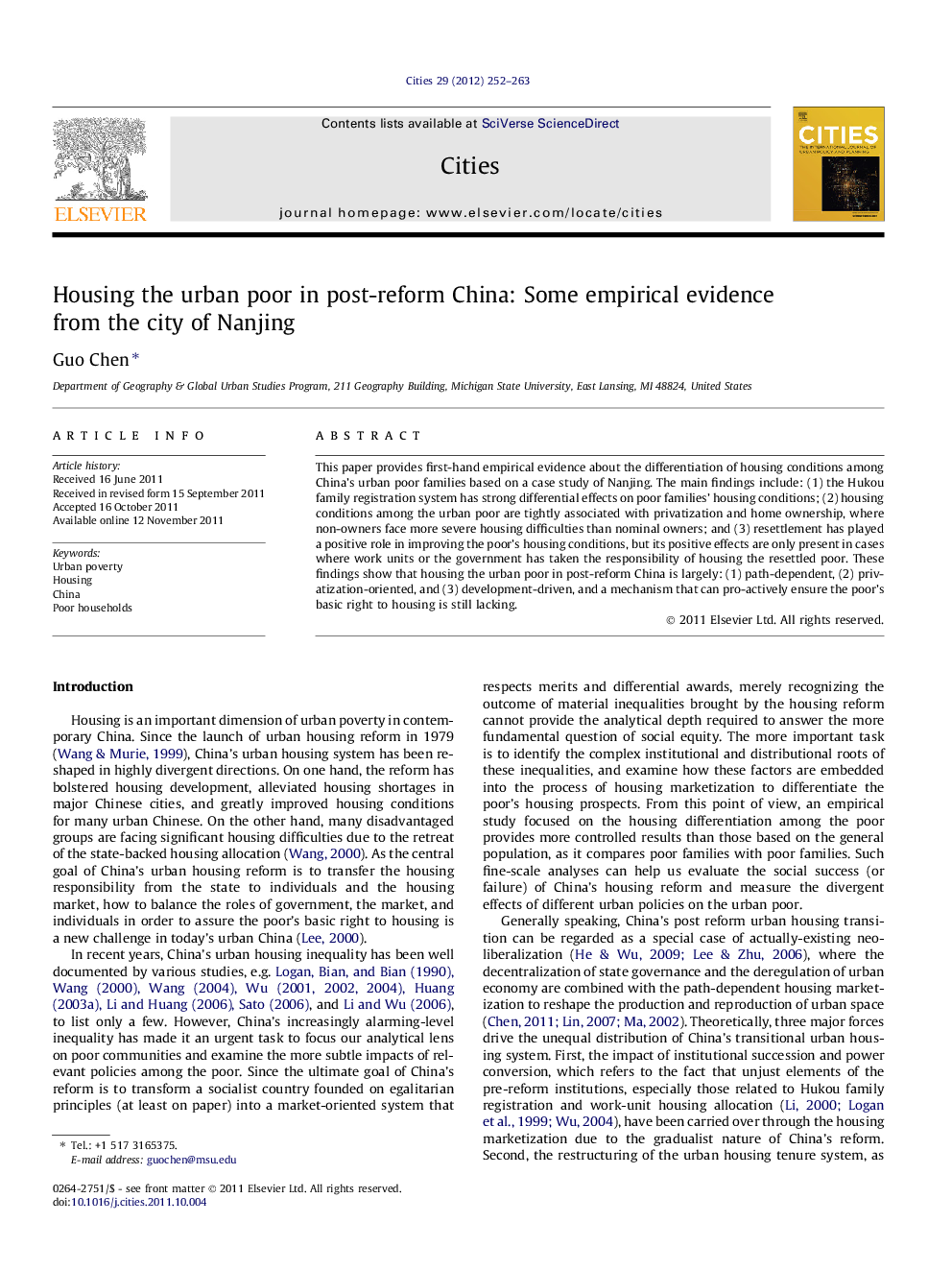| Article ID | Journal | Published Year | Pages | File Type |
|---|---|---|---|---|
| 1008627 | Cities | 2012 | 12 Pages |
This paper provides first-hand empirical evidence about the differentiation of housing conditions among China’s urban poor families based on a case study of Nanjing. The main findings include: (1) the Hukou family registration system has strong differential effects on poor families’ housing conditions; (2) housing conditions among the urban poor are tightly associated with privatization and home ownership, where non-owners face more severe housing difficulties than nominal owners; and (3) resettlement has played a positive role in improving the poor’s housing conditions, but its positive effects are only present in cases where work units or the government has taken the responsibility of housing the resettled poor. These findings show that housing the urban poor in post-reform China is largely: (1) path-dependent, (2) privatization-oriented, and (3) development-driven, and a mechanism that can pro-actively ensure the poor’s basic right to housing is still lacking.
► We investigate the housing differentiation among China’s urban poor families. ► We examine the variation from three perspectives. ► We show housing variations by Hukou types. ► We show housing variations by housing tenure and distribution types. ► We show housing variations due to housing change and resettlement.
